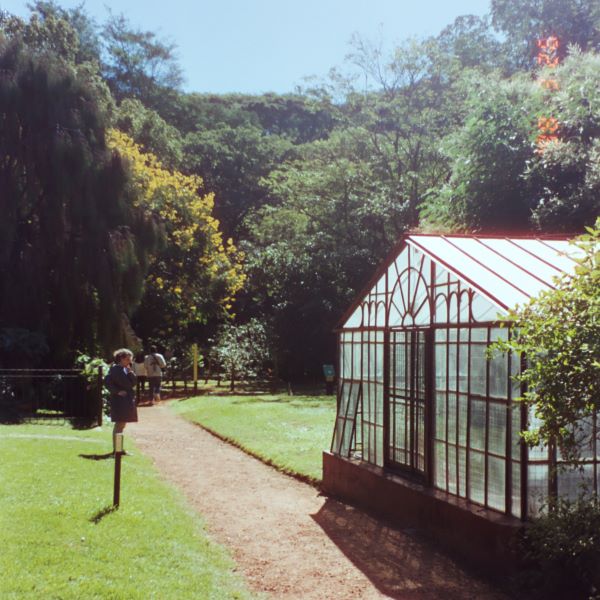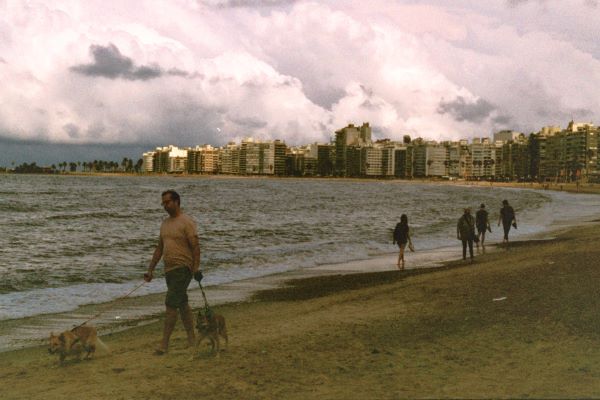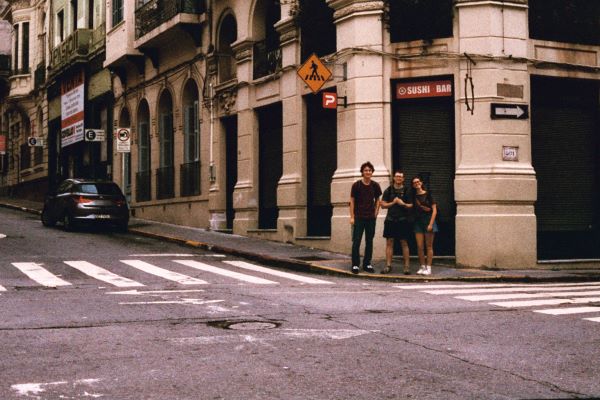The Culture Shock of Learning a New Language While Studying Abroad
If there was one thing I wish that someone would have adequately warned me about before studying abroad in Buenos Aires, it would be how much it can highlight a unique set of insecurities. It’s obvious that everybody deals with their own daily insecurities, but there is something especially unique which has emerged from this foreign-centered, language-learning, entirely-new environment––it has produced a feeling that I haven't experienced before. I feel that this is important to discuss because I find it to be different from both culture shock and the general discomfort that studying abroad can bring.

A hike in Bariloche through which I struggled a lot.

A woman at the botanical gardens in the city.
This may sound bleak, but every single day in Argentina, multiple times per day, I have had to deal with feeling really, really stupid. As a foreign language learner, this was somewhat expected, but it is crucial to note that it's not only the lack of language skills that can cause this feeling––it is the lack of ability to express yourself. Some days it feels like I have regressed to being five years old, in that I can only communicate menial feelings through jumbled (and probably grammatically incorrect) sentences. It can become extremely exhausting and often makes me feel very insecure and incapable. This strange feeling has proven to be one of my biggest challenges during my time studying abroad. However, as is true in many cases, there is an opposite side to this coin.

A busy day in San Telmo.

Church in San Antonio de Areco.

A man walks his dog on the beach in Montevideo, Uruguay.
If you are studying abroad in a group of people, especially in a language-acquiring scenario, there is a 100% chance that everybody else is feeling the exact same way. Regardless of individual language level, every single person in your program will be dealing with some type of insecurity or embarrassment. Whether it be about how they don’t fit in, how they can’t produce the right accent, or how they get jokingly picked on by their host brother for not knowing the local slang (guilty), this feeling is well-known to every exchange student. This fact should not serve as a deterrent, because the wildly uncomfortable scenarios that we find ourselves in are what help us grow stronger in our characters and closer in our relationships.

Cat seeking shelter from the rain in Uruguay.
For the first two months I spent in Buenos Aires, I felt like my Spanish had worsened as opposed to improving. However, as I sit in the final stint of my program, I look back and realize that the version of me who stepped into this country is a different person than the version of me who will step out. The version of me who will depart has drastically improved in her language skills––even though she once accidentally told her host mom that she was pregnant instead of embarrassed after being in the country for a month (embarazada ≠ avergonzado). She will have built relationships with people who were struggling with the same ebbs and flows of feeling confident and feeling unfit. Chiefly, she will be grateful that she chose to quite honestly leap outside of her comfort zone, becoming a better and more well-rounded person for it.

Ryder, Jacob, and Sophia on a quiet morning in Montevideo.
In short, best of luck to anyone who takes up this challenge. Lean into the insecurities, challenges, embarrassing moments, and ugly truths. It will always be worth it!











